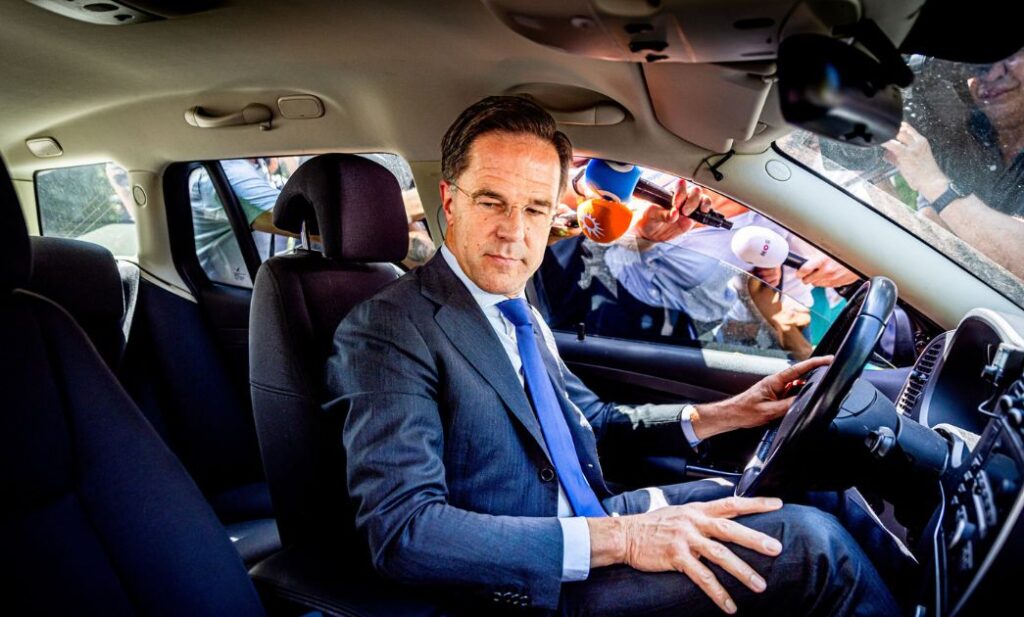Dutch Prime Minister Mark Rutte was all over the news on 8th July 2023.
You may ask why.
So, in a surprising twist of events, the Dutch government collapsed because Prime Minister Mark Rutte and his coalition partners couldn’t agree on a migration policy! This shouldn’t surprise us Indians – we have seen Indian governments collapse to rising onion prices!
Coming back to Dutch, Mark Rutte and his party decided to have a whole new election in mid-November this year. Until then, Mark Rutte and his cabinet will stay on as caretakers. However, they won’t be able to handle any hot-button issues, including nitrogen pollution, housing reforms, and asylum and migration reforms.
Oh, and by the way, Rutte said he’s done being the top leader after this term – calling it quits after a whopping 13 years in power. That’s one long run!
Now, it isn’t just a local Dutch mishap. It’s got implications for both their own and European politics. No one party can get a solid majority, making it hard to form strong alliances and stick together. The upcoming election might even complicate things, with new parties like the Farmer-Citizen Movement (BBB) getting a lot of attention and challenging the old guard.
But before we jump into the political side of things, let’s understand what actually triggered the collapse.
What triggered the collapse of the Dutch Government?
The Dutch government basically fell apart due to a big argument over asylum policies, particularly about limiting the number of refugees’ family members in the Netherlands to just 200 per month if they are from war-torn areas.
Now the erstwhile ruling party’s coalition comprised four parties – the VVD led by Prime Minister Mark Rutte, the Christian Democrats, the progressive D66, and the smaller Christian Union. All 4 parties tried to hash out a deal on the migration issue, which is a super contentious topic in Europe and the Netherlands.
But after weeks of talks, things went south on July 7, 2023. Rutte suddenly threw in some new demands that his coalition partners just couldn’t get behind. He wanted to restrict family reunions for refugees who had temporary protection status in the country. He claimed it would help control the number of migrants and ease the housing market pressure.
The idea didn’t sit well with his coalition partners. They said it would go against international law and human rights conventions and create a two-tier system for refugees in the country. They also accused Rutte of trying to please the anti-immigration crowd before the upcoming election.
Then, on Friday, July 8, Rutte gave the other parties an ultimatum – either they go along with his demands, or the government goes down. And guess what they chose? They decided to call it quits with the coalition, and Rutte offered his resignation to King Willem-Alexander. And just like that, after more than three years in power, the government collapsed, leaving the country in a real pickle.
What is next for Mark Rutte?
After his coalition government fell apart over disagreements on migration policy, Mark Rutte decided it was time to step back. It’s surprising since Rutte enjoyed his role as the prime minister and had hinted that he wasn’t done yet.
Rutte’s been in power since 2010, making him one of Europe’s longest-serving leaders and a pretty big deal in the European Union. Right now, he’s running a caretaker administration while they get ready for new elections in November 2023. His political future is a bit up in the air. He’s facing a vote of no confidence in parliament, which was filed by two left-wing and one far-right opposition parties. That vote’s set for Monday, July 10, 2023. To get him out, they need the support of at least one of his former coalition partners. But who knows if any of them will actually back it? As often said, there are no real friends and enemies in politics!
If the motion passes, Rutte will have to step down as the caretaker prime minister, and a new interim leader will be appointed until the elections.
One thing’s for sure: Rutte has been a major player in European politics, and his departure will leave a gap in the Dutch political landscape. He is also called Teflon Mark for ensuring his party passes unscathed for all the scandals that hit them in the last decade.
What happens in Dutch will remain to watch out for as with Rutte out of power, there’s no clear successor within his party or among his allies.
Conclusion
The Dutch government’s collapse over migration policy is a clear example of how this issue continues to divide European politics. Prime Minister Mark Rutte’s coalition fell apart when he proposed limiting family reunions for refugees from war zones. Now, with new elections scheduled for November, Rutte is currently a caretaker leader. The situation emphasises the complexity of European migration issues, with no simple solutions.
